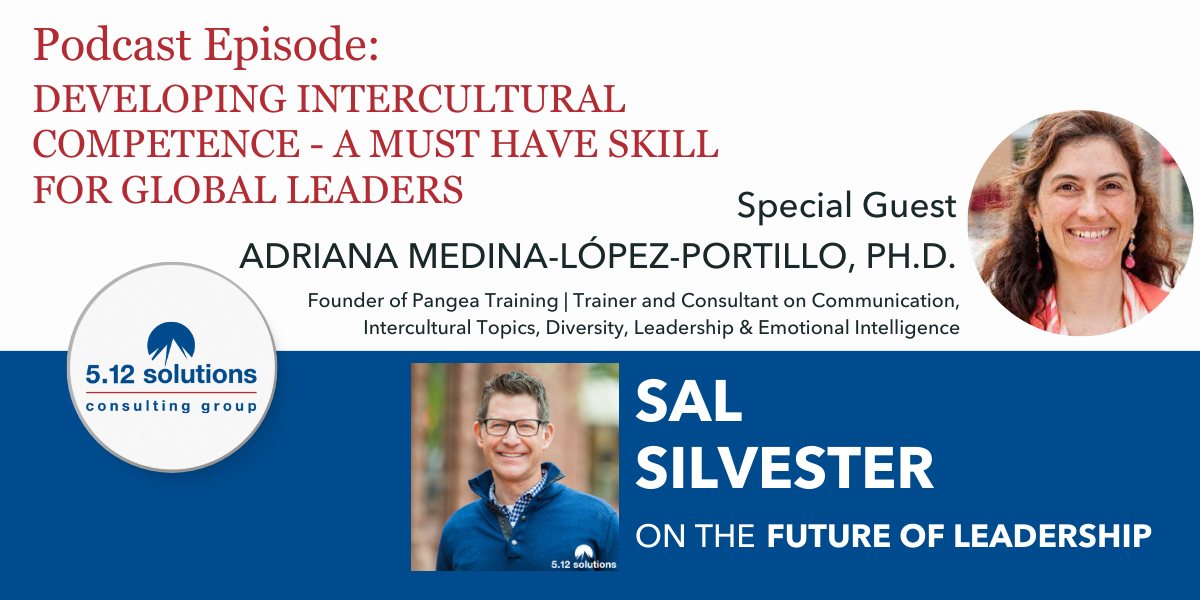Developing Intercultural Competence: A Must-Have Skill For Global Leaders
In this enlightening episode, our insightful host, Sal Silvester, joins forces with the brilliant Dr. Adriana Medina-López-Portillo to delve into the transformative realm of intercultural competence.
Navigating Cultural Waters
As organizations expand globally, understanding diverse cultures isn’t merely advantageous—it’s imperative. Our episode provides practical strategies for overcoming intercultural communication barriers, including bridging gaps, fostering understanding, and creating synergy across borders.
Beyond Borders: Mono-Cultural vs. Intercultural Mindset
Exceptional global leaders distinguish themselves by shifting from a mono-cultural lens to an intercultural mindset. Dr. Medina-López-Portillo explains the importance of this transition, urging listeners to broaden their horizons and enhance their leadership insight in today’s interconnected world.
Strength in Diversity: Leveraging Your Team’s Unique Talents
Diverse teams aren’t just a mix of backgrounds—they’re engines of innovation and resilience. Intercultural competence unlocks their full potential, enabling leaders to navigate cultural nuances seamlessly. Rather than seeking conformity, it celebrates differences, empowering individuals to contribute uniquely and achieve collective greatness.
Five Key Orientations for Intercultural Competence in Leadership
Below are 5 essential traits that define interculturally competent leaders. Whether you’re a seasoned executive or an emerging leader, these orientations will shape your success on the global stage:
1. Cultural Curiosity: Cultivate a genuine interest in diverse cultures, fostering openness and respect.
2. Adaptive Flexibility: Adjust communication and leadership styles to accommodate cultural differences.
3. Empathetic Engagement: Listen and empathize with individuals from diverse backgrounds.
4. Conflict Resolution Skills: Resolve conflicts constructively, considering cultural contexts.
5. Collaborative Leadership: Encourage teamwork across cultural boundaries, valuing diverse perspectives.
In today’s interconnected landscape, developing intercultural competence isn’t just a skill—it’s a superpower. Let’s lead with empathy, curiosity, and the unwavering belief that our differences make us stronger. Tune in, absorb, and apply these insights to drive innovation, collaboration, and success across diverse teams and environments.
Imagine having a roadmap for creating healthier, more aligned, and deeply human workplaces. When leaders embrace this game-changing model and welcome humanity into their organizational culture, they cultivate a workplace environment where employees can unleash their full potential and find meaning in their work.
Learn more about the six Cs of ‘The Human Workplace Needs Model” in my best-selling book, “The Deeply Human Workplace.”

